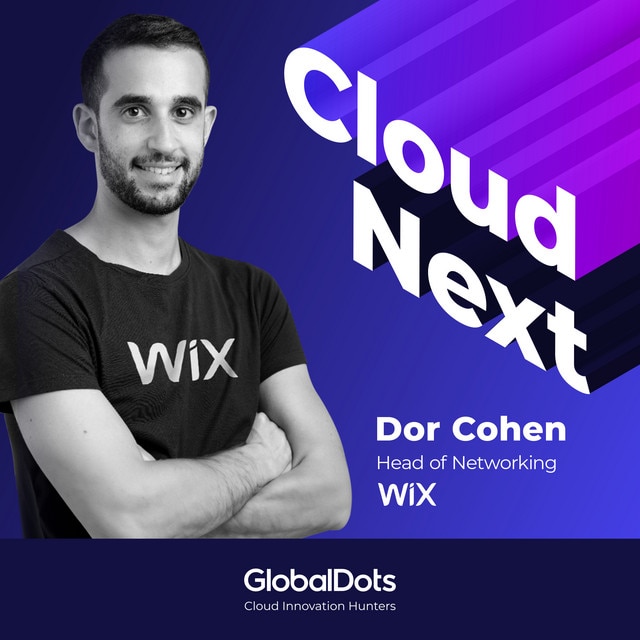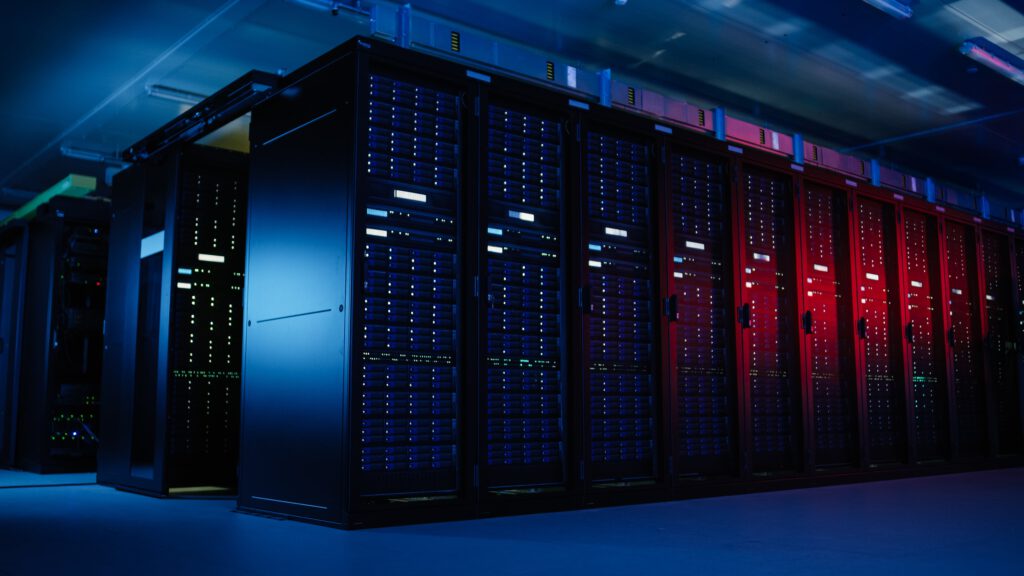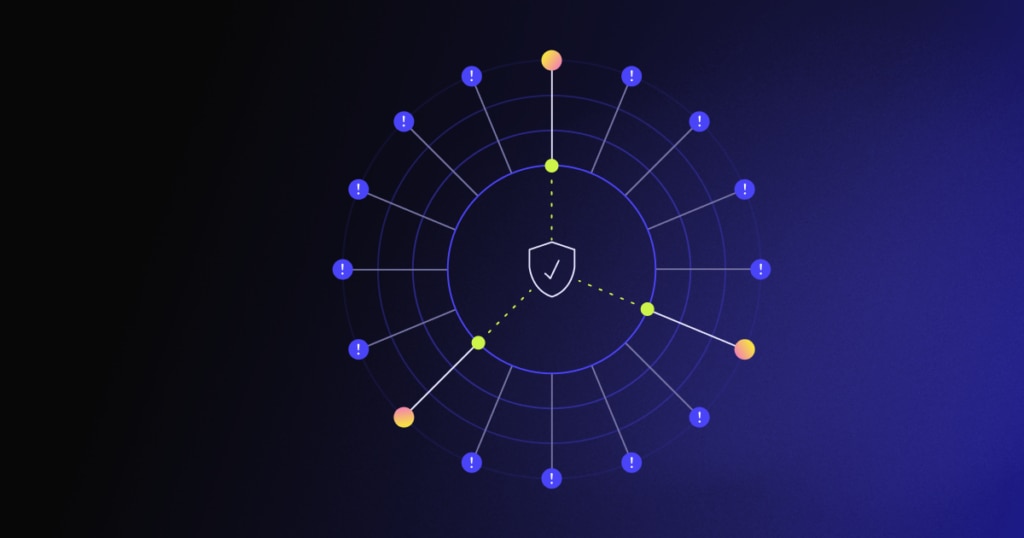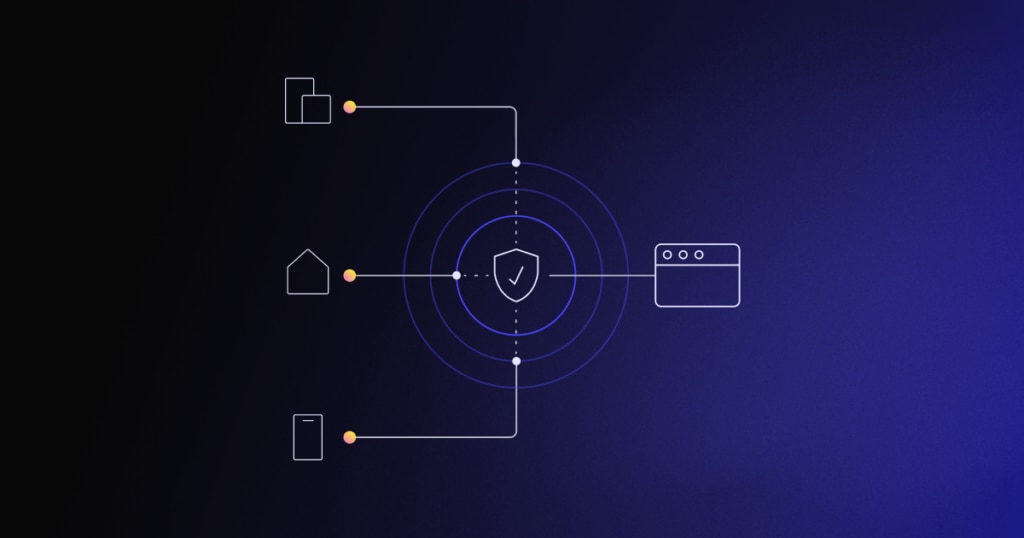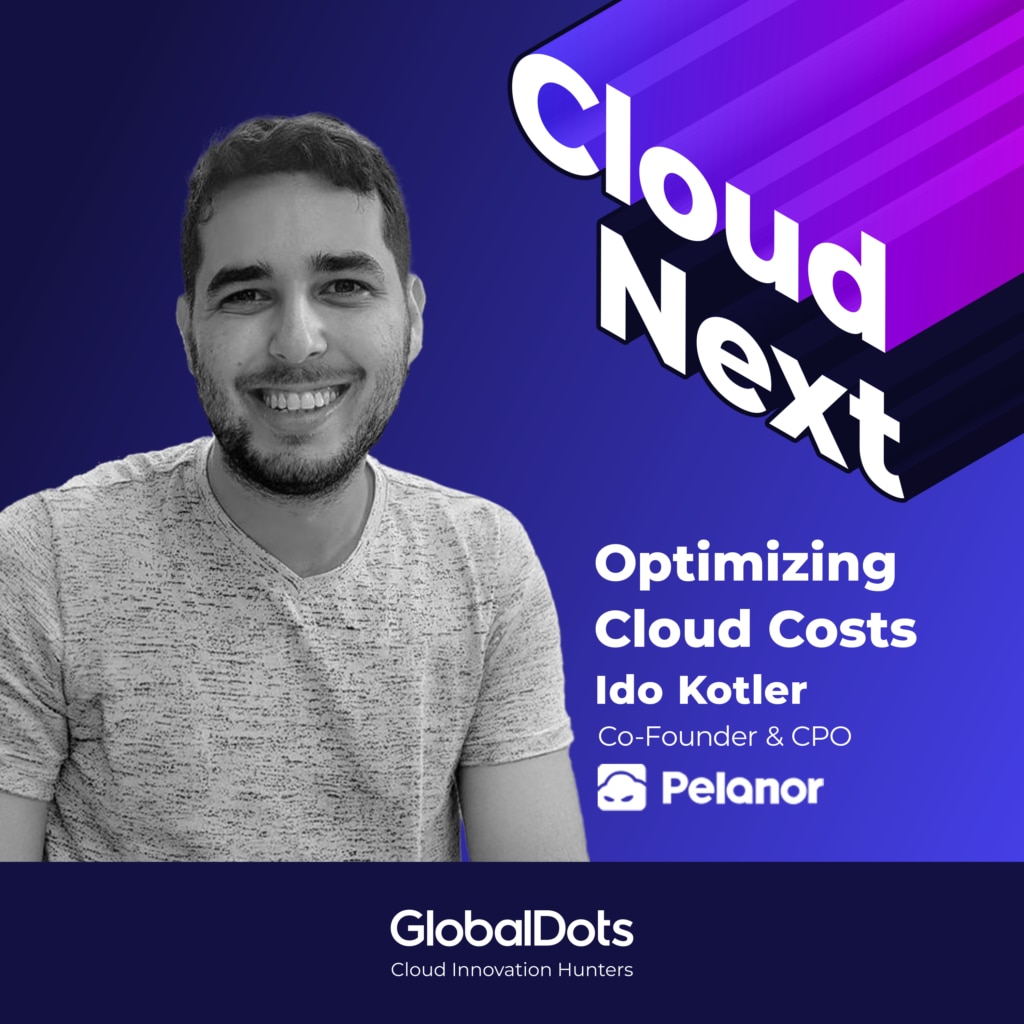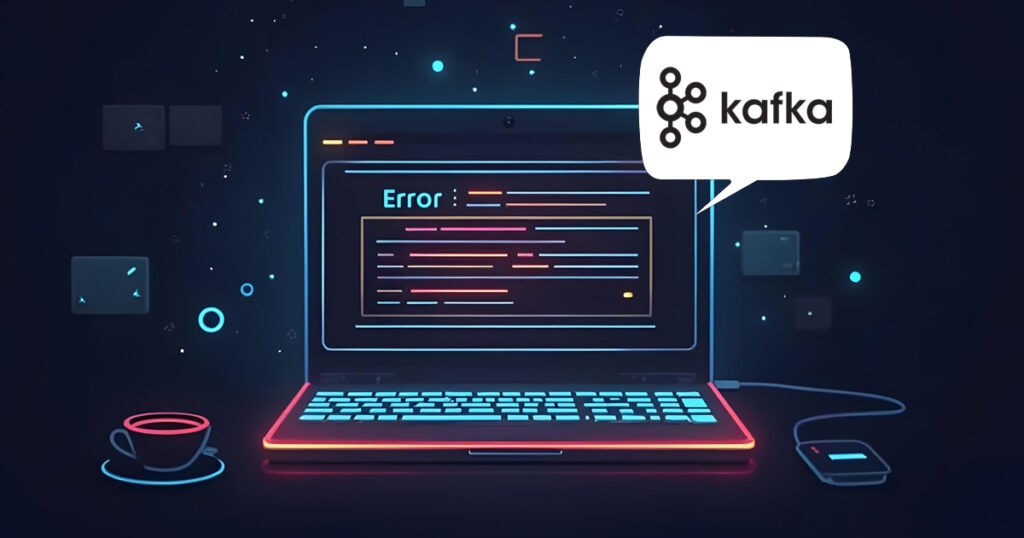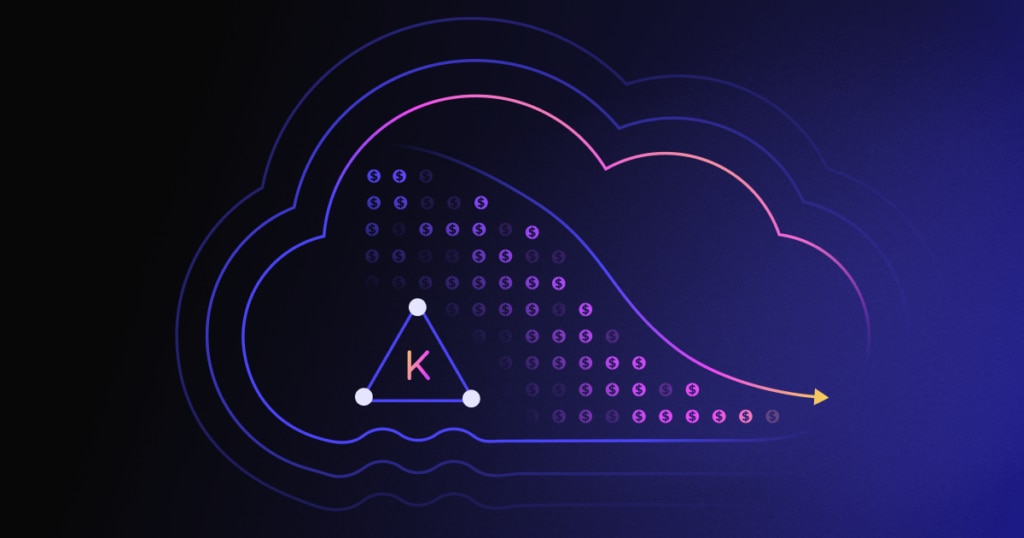This transcript was generated automatically by AI. If you find any mistakes, please email us.
Alon
0:00:00
Logistics is a nightmare, dealing with vendors is a nightmare, wire transferring, paying, delivering, working with delivery companies, it's a headache. I want my AI or my automation to do my laundry and to cook for me so I'll have time to do the interesting parts, the creative parts, not the opposite.
Announcer
0:00:22
Hello everyone, you're listening to Cloud Next, your go-to source for cloud innovation and leaders’ insight, brought to you by GlobalDots.
Tomer
0:00:32
IT hardware procurement, distribution and logistics often get overlooked as routine tasks taking a backseat to high-level strategy. Yet, these essential processes are the backbone of smooth operations, particularly for onboarding and offboarding. Neglecting them can cause major disruptions, productivity loss, high costs, security risks, and reduced efficiency.
Tomer
0:01:00
How aware are we of the logistical headache quietly affecting our team's performance? Hello everyone, and welcome to Cloud Next brought to you by GlobalDots. I'm Tomer Mufidzon, podcast producer, and I went to Dots offices to meet with Alon Zlatkin, CEO and co-founder of DOTS. What is Dots? A new startup that solves logistic nightmares for IT departments and helps companies grow more efficiently on a global scale.
Tomer
0:01:31
Ganesh the awesome, our beloved podcast host, joined us remotely. Alon, before we start, what should people know about you? Tell the listener a bit about yourself.
Alon
0:01:41
I'm 39, married, with a kid. Came to GlobalDots or Dots after running a startup for seven years.
Alon
0:01:49
And yeah, now I'm here.
Tomer
0:01:50
And also with us is our host, Ganesh, who wanted to be here, couldn't be here, so we're doing this threesome together.
Tomer
0:02:00
It sounds strange, the word threesome.
Alon
0:02:04
Not for Ganesh.
Tomer
0:02:05
Yeah.
Ganesh
0:02:06
That's all right. We take the romantic symbolism with the nature, with the Dots, so that's
Ganesh
0:02:12
okay.
Tomer
0:02:13
So let's start with the key challenges in IT logistics that companies tend to overlook, and why do logistics remain a burden that no one wants to tackle?
Alon
0:02:27
So I think we should start from the beginning. I think when I joined GlobalDots, the main idea was to build a product around some departments that was inside GlobalDots that understood there is a huge gap that they found out during COVID that companies inside GlobalDots having a big issue to deliver kits of corporate IT to remote employees. And they start scaling this up and there's a big problem around it.
Alon
0:02:58
HR departments, IT departments, procurement departments are spending approximately in our calculation, almost third of the year on logistics. And we're not really inventing the wheel. I think what's happening inside the companies there is this grey zone of like this stuff that's happening,
Alon
0:03:16
but no one really knows about it. Not the CEO, not the COO, even not the HR. Just like, oh, onboard me this guy in Japan. No one knows how they deliver this computer, how much time you need to spend in order to bring the right vendor and to sign all the right compliance with this vendor and then to procure it and then deliver it and make sure that was delivered. And what happened after the employee leaving? So you need to off-board the employee. So what
Alon
0:03:40
you're going to do with the stuff? So it's a waste of time and money and there is a huge gap that created between the departments, between procurement, HR and IT, depending how it's working in each company. And this is what basically Dots is coming to solve. We are providing an automated solution for IT logistics and help companies run it with a sophisticated automation and with asset management and with a lot of integration to help companies run, procure, onboard, offboard and warehouse.
Tomer
0:04:14
I wonder like 20 years from now, there will be a study about how many initiatives started because of COVID, right? Yeah, it's mind blowing how it changed our life.
Alon
0:04:30
It's an interesting point because logistics, in general, everything related to procurement, even if you will try completely automated, there's so many fractures that happening inside logistic, like you have the procurement, then you have the delivery, then you have the finance team,
Alon
0:04:43
you have like all this purchase orders and service orders and the invoicing. So even if you will try to some way automate it, you still have so many fractures and we're learning from existing companies what's happening right now and how we can help them to automate these processes because the time and money that you waste in order to do it. I actually saw something very interesting, someone saying like I want my AI or my automation to do my laundry and to cook for me, so I'll have time to do the interesting parts, the creative parts, not the opposite. And when we speak with IT people, we tell them the same thing.
Alon
0:05:18
We say, you know what, I want to take all the boring nonsense, the time you waste on speaking with vendors and with living employees and chasing up delivery companies, so you're companies. So we are actually going to have more time to deal with, I don't know, with cloud solutions to your IT department or better security to the assets you're running inside the company. So this is our approach, at least from this perspective.
Tomer:
Doing the actual work.
Alon
0:05:47
Doing the, yeah, doing the gray work.
Tomer:
If you're going to do the grant work, some people will do the actual work.
Alon:
Exactly, exactly. But with a cool workload and a cool automation and yeah, absolutely.
Ganesh
0:06:03
You touched immediately on automation and knowing it's currently the end of quarter as we do this recording and it is complete chaos trying to get things through Salesforce and get all the right vendor orders and purchase orders and everything signed. Maybe you could walk us a little bit through some of the automation that's in there, or how you look to alleviate that.
Alon
0:06:29
So, at least from the perspective of the IT, end of quarter, or in general, chasing up about invoice and POs, I think here is the connection between the finance and procurement departments. You have so many other systems that build around POs
Alon
0:06:44
and SOs and running vendors, like, I don't know, like ZipHQ or other platforms, right? But in general Dots, I think the biggest Dots are the value. We're not really competing with any one of the systems. What we really do, we integrate to the system. So we integrate to Oracle Netsuit and we integrate it to all the HIRS like BambooHR and Workday and HiBob. We integrate it to Jamf and Kandji and
Alon
0:07:09
Intune. And we also integrate to all these other financial platforms and the idea is basically to create a way that you as an IT manager, as a procurement manager, have all the access so you can connect each asset to the right invoice, to the right POs and waste less money to chase up the people for each vendor, for invoice, POs and SO on. I think the magic here is inside the integrations.
Tomer:
Is it true that CISOs and CTOs may not be aware of the day-to-day issues of employees with the small stuff?
Alon
0:07:47
Yes, but then again it depends on the policy of each company. Today we see a big, you know, the same level in the big companies that are trying to consolidate the types of ITs they hold. So instead of like managing like 10 kind of different laptops, they only manage like two Macbooks and that's it. And with the same peripherals. And actually it's very easy to manage. But in 2025 we're going to release our employee portal. And inside the employee portal, I guess in the same ways that you're familiar today with HiBob, you will be able to log in, see what you have as an employee from your asset, you can choose maybe
Alon
0:08:28
what's going to be your next computer, if you have some report to tackle and stuff like that. I think it depends on the policy of the company, I don't think they're doing it deliberately, I think it's just trying to consolidate the level of the asset and we can help them solve it.
Alon
0:08:47
And the way we do it, that we can collect the off-boarded assets, we can sell it for them, give them back credit so we can always provide to the employees new kits at time. Sometimes when you're getting an old computer and you say, what's going on here and why it's broken, why it's not working properly, I think just because the company didn't really prepare for it.
Alon
0:09:10
They didn't really prepare for your onboarding. They didn't really prepare and understand what they need to provide to you. And I think this is the wrong communication that's created between departments, between the HR, IT and procurement. And this is part of what our system is coming to solve. It's creating this coalition between these three departments. So when HR connected, let's say it's a HiBob, and you have an employee that is status hired. So our automation, our workflow,
Alon
0:09:38
that any IT manager can build, saying like, okay, this guy's hired, this is his kit, it will be delivered on this date when he's starting to work, and that's it. And you will get the right assets in time, they will be brand new,
Alon
0:09:50
because this kit is warehoused in our stock, in the warehouses that we manage around the globe.
Ganesh
0:09:54
Interesting part of that, I often believe that companies completely lose track of what they've given to people. And you also see the platform as a way to recoup the losses of staff turnover in organizations.
Alon
0:10:09
I do. I think part of the policies today in the companies is that only manage the notebooks. No one really manage all the peripherals, the screens and the headsets and everything else because there is no way to manage it.
Alon
0:10:23
People say, how will we be able to manage that? Now, we're talking about in some companies hundreds of thousands of dollars a year, depending on the size of the company. And the notebook you need just to manage because you manage it in the MDM. But today what we provide in our system, if you procure with Dots, every asset from a small cable to a notebook to a TV printer
Alon
0:10:47
or whatever you can buy in our global catalog, you are able to track. We have a changelog to each asset because it's moving from a vendor that we use to your employee, to the house, to his house, to his local office in New York, and you will be able then to move it to other warehouse, then we'll be able to sell it for you or refurbish it for you. There is a changelog for each asset.
Alon
0:11:13
There is an order attachment, invoice attachment. So from the compliance perspective, you can track each asset where it's been. I think the biggest pain today for companies on-boarding and off-boarding. And we have 100% success rate of off-boarding employees,
Alon
0:11:30
even the ones that don't answer in two, three months. And we are able to retrieve all these lost assets, sell it for them, or stores it for them in a warehouse, and by that also manage this asset, not only notebooks. Understand the pain points of the onboarding and offboarding, but are there any pain points
Tomer
0:11:50
you see in the middle of an employee's cycle?
Alon
0:11:56
I think to employ a proper employee you just need to onboard them the computer on time, the computer that you ask for, the notebook you ask for, with the right peripherals. If you do it on time, I think the first impression of the employees is very good for the company if you're late.
Alon
0:12:11
And this is basically what's happening 90% of the time when you're doing it by yourself. Because to manage a vendor and the delivery times, this is a headache. And sometimes you can't control what's happening with your vendor in the Philippines.
Alon
0:12:22
Language barrier and stuff barrier, this is what we're coming to solve with our local partners. If you solve that, I think you're good to go. I think this is 90% of happy employee. And in the middle, depending what's happening. So you can report in our system if something
Alon
0:12:38
happened to the laptop. We can help to provide IT as a service. We can retrieve the laptop. We can fix it for you. And then again, when the employee is leaving, I think you need to keep this high impression of the company even in the
Alon
0:12:51
off-boarding process. I think the fact that we're contacting properly with the employee, bringing him the box, collecting all the stuff, you don't need to chase anyone up, and then put it back in the warehouse, data wipe it, recycle it, sell it for you, give you back credits. You're creating this end-to-end asset management life cycle that we as a one vendor are creating all the services in one place, so you don't need to, you know,
Alon
0:13:17
asking yourself every day,
Alon
0:13:18
who is the next vendor, what I need to do, etcetera.
Ganesh
0:13:24
The sales pitch makes perfect sense if you don't have an asset management system. And I'm sure that's most organizations, if I'm completely honest. What would you say to companies that have built their own asset management system already because definitely larger corporations will have built an asset inventory and they will have built a
Ganesh
0:13:43
company marketplace and all that. What would you say to those people?
Alon
0:13:46
Well, I think all the companies that have their internal solutions that they do for asset management and running, I don't know, let's say, Jira Asset Management or other platform with the ticketing system or with Atera or some other platforms, our system is very agile. We call it the GLS, the Global Logistics Service. You can log in with your own system.
Alon
0:14:07
You don't have to run your asset management with Dots. You can only use the GLS, the onboarding, offboarding, procurement. We have, we're going to release our own API by the end of the year, so you can connect it to your asset management and track the onboarding and offboarding from your system. But all in all, we're also creating very cool, interesting integration.
Alon
0:14:26
For example, we did integration between Jamf and HiBob. Okay, so you can download all the assets you have in Jamf and we can automatically connect to the employees with HiBob, something that Jamf don't even intend to do. And you can see the connection between the employees and the assets inside our platform in a very or
Alon
0:14:42
in a better user experience way. We don't really try to compete with all these solutions. If you're a company that built your own solution and you only want to use our GLS, you are welcome. Happy, sometimes we have a lot of design partners that we're building for them some of the integrations.
Alon
0:15:03
And yeah, the idea is to open this integration marketplace that will help companies not to break the method of their work rather than connect and continue to use the logistic automation. This is, as I said, always this is going to be our added value as a company.
Tomer
0:15:24
You touched a bit about maybe the answer for my next question, but we are reaching the end of the year, we're in the middle of the decade.
Alon
0:15:33
Where do you see DOTS going? Next quarter our main focus will be working more on automations, more workflows automation, giving our clients more peace of mind and less work. This is at least our go-to in this quarter. And yeah, 2025 will be expanding our company more to Europe, more to US, releasing the employee portal, I think is going to be a crucial part of our ecosystem. And our vendor CRM, we're going to create a big marketplace for vendors to connect,
Alon
0:16:11
vendors from asset selling to IT as a service to deliveries and more, and focusing more on that as well. I think 2025 going to be a growth year for us, and at least this is where we are going.
Tomer
0:16:26
Big dreams, good dreams.
Alon
0:16:28
Well, yeah.
Ganesh
0:16:29
On the purchasing side, most organizations would usually want to go to like two or three vendors, make sure they're getting the best price. If they're integrating with dots and we're just giving them the price of a laptop or a screen, like what assurance do they have
Ganesh
0:16:47
that we're getting the best price from multiple vendors because essentially you're solving a vendor lock-in problem or a vendor problem with a vendor lock-in problem, I would say.
Alon
0:16:58
Well, I think this is the main... This is the core solution of Dots. This is our automated bidding system. And the idea is we're not a marketplace. I'm not providing you prices. And the reason is that when you're creating a request for a laptop,
Alon
0:17:17
what's basically happening is that we are sending to all our operating vendors in this geographical area, we're receiving the RFQs, and our bidding system will always provide you the best price based on our PES, we'll call it, like price, ETA, and specs, okay, in terms of prioritization. So no matter what, you as a client will always get the best price because we are not working
Alon
0:17:44
with one vendor, we're working with dozens of vendors in this area, and sometimes we're creating double bidding in order to provide you the best price. And you will never get it, you will never work with 10 vendors as a company, because to create compliance with 10 vendors and working with 10 vendors
Alon
0:18:00
and communicate with 10 vendors, it's madness. And this is why DOTS basically creating uses multi-vendor coordination, that you can work with 10 or 15 vendors without knowing you're working with 10 and 15 vendors. And this is the core solution of our technology.
Tomer
0:18:19
We touched a bit about the pandemic, but it did start as something...
Alon
0:18:27
Yeah, It started just as a nice idea from someone that said, can you ship me one laptop to this country? And said, oh yeah, I can ship it. And then, can you ship me this laptop to this country? And I think, as we can see today in the competitive landscape, you see a lot of companies are trying
Alon
0:18:50
to provide this kind of solution. Some of them are focusing more on asset management and MDM and cloud management, some of them less. I think we have our own way. The pain is clear and it's in majority of the companies, even the ones that build their own internal solution.
Alon
0:19:11
Logistics is a nightmare. Dealing with vendor is a nightmare, wire transferring, paying, delivering, working with delivery companies in countries like, I don't know, in Brazil or Argentina or Vietnam or China, it's a headache. And companies today are, you know, they're working globally, have a lot of branches, remote employees, and you want to give them the flexibility
Alon
0:19:38
that people don't need to think twice if they want to hire someone in China or in Vietnam because how they will deliver them the computer because of their compliance issues. So, and this is part of what's Dots trying.
Tomer
0:19:50
Yeah, it's an eddic and I'm trying to understand what made you say, I'm gonna take everybody's headache
Tomer
0:19:55
and make it my headache.
Alon
0:19:57
I think maybe I have some passion to create something low-tech into high-tech. I think it's there is a lot of I guess from the entrepreneurship side when you look on you're taking something that's working in such a broken way and something that already exists not like you inventing the wheel and you just automate it or make it much more efficient and people look at you and just telling you,
Alon
0:20:25
oh, thank you. I think this is where our passion coming from, creating a good product that solve a real problem, that generate actual money from day one. As a company that want to grow, it give you a lot of confidence to move forward
Alon
0:20:43
and bring more solution to this space.
Ganesh
0:20:45
Yeah, I mean, I've been in that space over the years, not so much anymore, thankfully, but I would totally agree that it's a fucking nightmare dealing with that many vendors and trying to chase at everything. Assuming that you solve that problem and everybody hops on board with the platform, I immediately would see the next problem as being solved would be to, I want my laptops pre-configured with certain software on or I want my phones to be locked down in such and such a way. What are your thoughts on Dots and the future of that part of the enterprise?
Alon
0:21:25
So, first of all, the future of that part, even if before we're speaking about management, my laptop on my phone is a we are working now on an agent a smart agent inside the system will give you more recommendation about what laptop to buy and when to sell without involving a human factor here. We're collecting a lot of valuable data here that I think will be a great add-on to IT manager or HR manager or procurement manager to take the right decision at the right time when to restock when to buy when to sell
Alon
0:21:53
Because assets is a living thing and the prices go up and down all the time and if you're holding hundreds of thousands of assets, it's becoming already a big amount of money. So this is one of the add-ons that we will go from here. But talking about the cloud management of the asset, or what Ganesh asked, one way is to integrate with partners, and we're already discussing this a few. So basically instead of doing it by ourselves, just integrate with a few partners, the same as we're doing with vendors, as we don't hold our stock.
Alon
0:22:36
So we're working with vendors to procure and deliver assets, so why not to do the same thing with management of this solution as well. The other way is basically to do it by ourselves, but time will tell. I think right now we really really want to focus on the logistic on automation, make it as perfect as possible, make our clients happy, create more recommendations from, as I said, from the agent perspective, creating the employee portal so employees can handle it as well.
Alon
0:23:07
As you said, you had this fracture as an employee and move to more of the software side later on. I guess we will see more of that end of next year.
Tomer
0:23:17
Okay, so we like to ask our interviewees in the last and final question is always the DeLorean question if you can go back in time and give yourself a one piece of advice or more professional advice what would it be?
Alon
0:23:37
We saved the tough for the last one.
Alon
0:23:42
Professional advice.?
Ganesh
0:23:44
You can't say buy Bitcoin.
Alon
0:23:47
Someone already said it. Someone said it? Yeah. Okay, I'm sure it's a professional advice. If I go back in time, trust more the people you work with, delegate more, stress less.
Tomer:
We should put it on a sticker or a t-shirt.
Alon
0:24:09
Maybe.
Tomer
0:24:10
Alon, Ganesh, thank you very much. It was a pleasure. Alon, Ganesh, thank you very much. It was a pleasure. Amazing. Thank you Ganesh. Enjoy Athens. Thank you, Thomas.
Alon:
thank you Ganesh.

